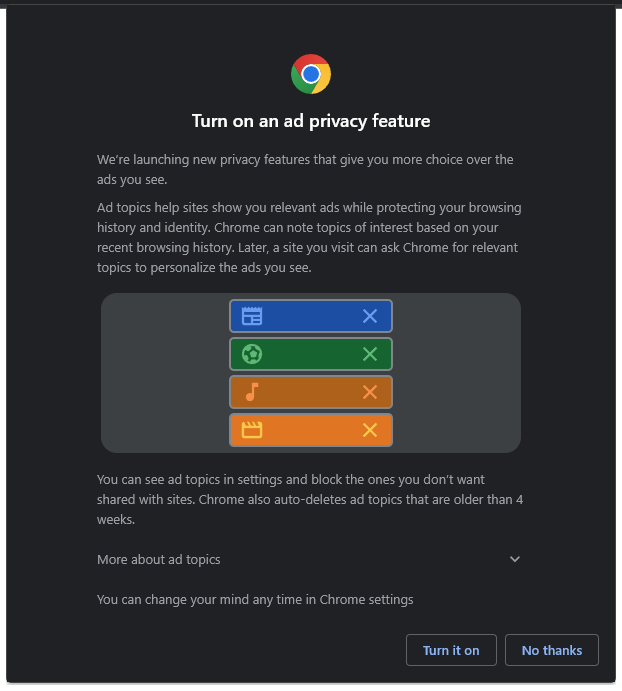this post was submitted on 25 Oct 2023
756 points (95.8% liked)
privacy
2842 readers
12 users here now
Big tech and governments are monitoring and recording your eating activities. c/Privacy provides tips and tricks to protect your privacy against global surveillance.
Partners:
- community.nicfab.it/c/privacy
founded 2 years ago
MODERATORS
you are viewing a single comment's thread
view the rest of the comments
view the rest of the comments

There is a lot of misinformation being shared in this thread.
A good excerpt from Steve Gibson covering Topics on SecurityNow #935
...
...
SecurityNow #935 transcript
Yeah - this is the privacy model that ad targeting should have always taken. People are grabbing pitchforks not really knowing why.
Moving profiles to the edge and only letting ad servers know what to send rather than connecting the ads to profiles of centrally located browsing data and history would be a huge step forward in privacy for the average user.
The even better version of this would be the ad server sending "ad options" and the browser selecting what to show based on the internal profile, so even category data isn't sent, just the potential linking of which ad is shown to which user (but not knowing if that correlated to an actual preference or if the other options were just equally poorly targeted).
No they should use context ads like duck duck go
They should ad an option to pay for the service with not tracking nor ads.